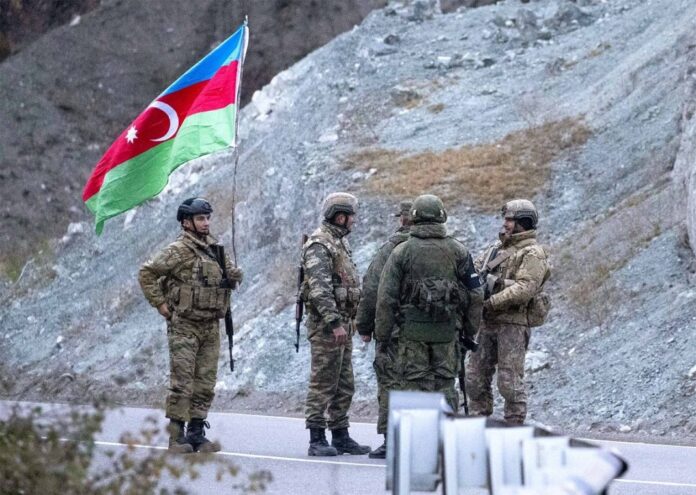Author: Michael Doran
Affiliation: Hudson Institute, Washington, D.C. (Former Senior Director in the U.S. National Security Council, Senior Advisor in the U.S. State Department, and a Deputy Assistant Secretary of Defense of the United States-George W. Bush Administration)
Organization/Publisher: Baku Dialogues
Date/Place: Winter 2021-22/ Azerbaijan
Type of Literature: Analysis
Word Count: 9800
Link: https://bakudialogues.ada.edu.az/articles/azerbaijan-in-the-struggle-for-eurasia-27-01-2022
Keywords: Azerbaijan, Security, Armenia, Nagorno Karabakh, Turkiye, South Caucasus, Central Asia, and Liberation War
Brief:
Azerbaijan’s victorious 44-day Karabakh war with Armenia, which erupted Sept. 27, 2020, and ended with a Russian-brokered cease-fire Nov. 10, is historic in many senses. It is perhaps the first time in at least the past 100 years where a Muslim-populated country was able to change geographies in its favor. This extensive piece looks at the US’ retreat from the Middle East and Central Asia but the rising importance of the South Caucasus and the larger struggle for the Eurasian regions pointing to Azerbaijan’s rise from being a “virtually failed state to a military prowess.” The author notes five reasons for Washington’s “pull out” including the US’ domestic legitimacy crisis, rise of Sino-centrism, dictates of “Restraintism”, Iran gambit and the “disaffection” with Türkiye. “As it develops a strategy for winning the struggle for Eurasia, Washington will soon rediscover the set of unique characteristics that make Azerbaijan a prime candidate for a special partnership,” the author notes, referring to various examples from the recent past after the fall of the Soviets which predicted Baku’s importance for the US. The Washington D.C.-based author sees Baku’s geopolitical significance as “a natural counterbalance to Iran.” Pointing to rising nationalism in Azerbaijan, the author says the Nagorno Karabakh war led to tensions in parts of Iran with Azeri descendants. He also looks at Baku’s “long and deep, and strategic cooperation” with Israel as Tel Aviv receives around 40% of its oil from Azerbaijan. The apartheid state in return sells high-end military equipment that the author identifies as having played a defining role in Azerbaijan’s military victory against Armenia. “The Iranians, for their part, have long assumed that Azerbaijan is assisting Mossad, Israel’s intelligence agency, in its covert war against their nuclear program,” the author explains. He also points to the “significant” erasure of Russian influence in the South Caucasus and Central Asia due to Baku’s policies. “If Baku remains deferential to Moscow, it is by necessity. But when seen from Washington, this deference sometimes blinds Americans to the dramatic change in the balance of power that the Second Karabakh War represents,” the author stresses. Not only because of Azerbaijan’s “own inherent skill in statecraft”, as Baku has been able to “fend off Russia, Armenia and Iran”, says the author, “but also because it stands on the shoulders of Turkiye.”
By: Riyaz ul Khaliq, CIGA Non-resident Research Associate




